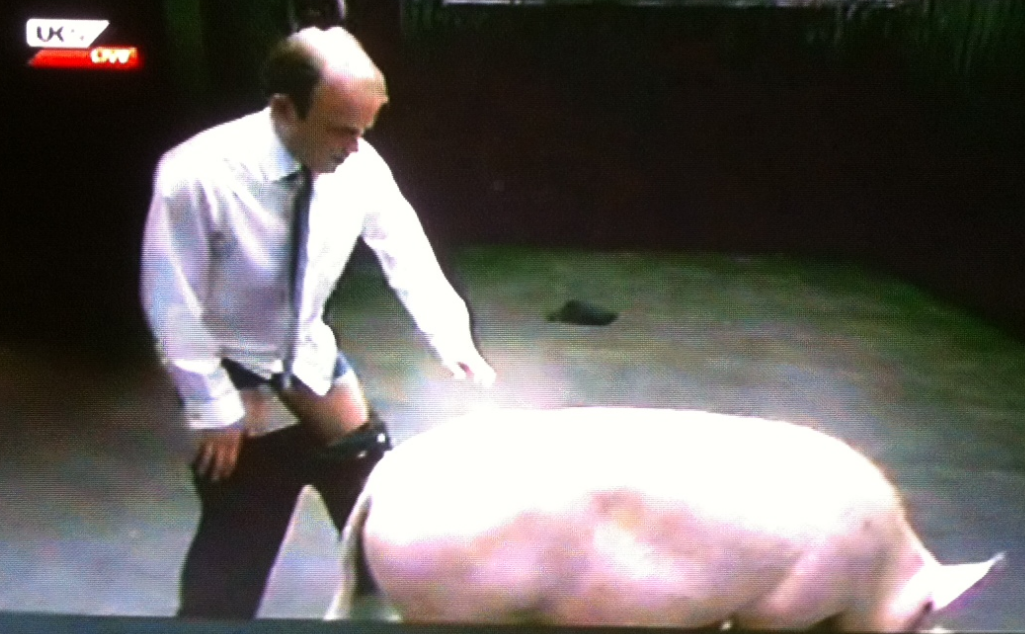Haven’t had a TV for years and can’t say I miss it. Don’t want to spend all that time watching more and more shows, as wonderful as the seemingly endless content might be. The only program I’ve gone out of my way to view in the past five years is Black Mirror, a brilliant and often hilarious satire that some have called futuristic, though it can barely keep up with the present.
That’s not the fault of Charlie Brooker, the program’s creator, who’s brilliant. As I wrote in 2015, it’s tough being Paddy Chayefsky these days. In our souped-up world, with ubiquitous cameras and speeding media cycles, as soon as you can get a handle on a situation, the moment has passed. It’s on to the next outrage or suspiciously communal viral moment. It all seems quantified, commodified and focus grouped, even the spontaneous bits. If someone can break through this sound-stage world with something genuine, no matter what it is, how we appreciate them. We’d even consider them for President.
In a Vice interview conducted by Angus Harrison, Brooker, who’s just released the third season on Netflix, discusses the near-impossibility of being a futurist when every day is tomorrow, the difficulty of satirizing and ever-more extreme society. An excerpt:
It’s impossible not to recognize a hint of frustration in his voice when I mention the binary “technology goes wrong” view of the show some people have. “I think sometimes, when people are parodying it, they miss how self-aware it is,” he says. “I know when it’s being a bit silly.”
It’s an important distinction, given the 21st century’s unstoppable, almost unknowable rate of progress. The idea of being lectured or chastised for behaving in a certain way feels alienating and reductive. Yet, crucially, Black Mirror has never really set out to make people look stupid; rather, its intention has always been to make people look like people. Flawed, bruised, and lacking the requisite software to cope with the threats and promises of the digital age.
Take “Be Right Back,” surely the best episode of the second season—if not the entire show. It’s a harrowing hour of television, in which a young woman clones her recently deceased husband using the blueprint of his identity, as spread across his social media activity. The episode isn’t a lecture: The characters are left confused and morally conflicted, much like the viewers. Is this where satire has to turn in an increasingly extreme world? To the intimate and the personal?
“Possibly,” Brooker nods. “I hadn’t thought about it like that, but quite possibly, that’s where you have to go if reality starts outpacing the grotesqueness of the fictional world.”
This outpacing, of course, specifically alludes to the two starkly prophetic instances in earlier episodes of Black Mirror—series one’s “The National Anthem” and series two’s “Waldo Moment,” both of which depict events with eerie similarities to real political events: Cameron’s pig-fucking debacle and the rise of Donald Trump, respectively. Yet, while the parallels do bear striking resemblances, the episodes show more the mind of a writer who is fearful of ochlocracy and the corrosion of democracy.•
Tags: Angus Harrison, Charlie Brooker

